Last updated on December 26th, 2023 at 01:35 pm
The Body Control Module (BCM) in vehicles is an indispensable component, often referred to as the central nervous system of a car. This electronic control unit is responsible for operating and controlling various functions, from managing the power windows and mirrors to the central locking system and interior lighting. However, issues with the BCM can lead to both active and passive damage to a vehicle. Active damage is evident; you may notice malfunctions in the car’s electrical components, erratic behaviors, or even complete failure of some systems. Passive damage, on the other hand, is subtler. It can cause a gradual drain on the battery or intermittent issues that may be difficult to diagnose. Addressing BCM issues promptly is, therefore, crucial to maintaining the optimal functioning of your vehicle and preventing further complications.
Understanding the Body Control Module (BCM)
The Body Control Module (BCM) is essentially the automotive equivalent of the human brain, controlling and coordinating activities within the vehicle. As an embedded system, it seamlessly integrates multiple functionalities, adding convenience, safety, and efficiency to your driving experience. The BCM encompasses a broad range of systems – from the powering of windows and mirrors to the activation and deactivation of anti-theft systems.
The air conditioning system, for instance, is controlled by the BCM, which regulates the temperature and airflow based on your preferred settings. The BCM also manages the central locking system, ensuring the vehicle’s security by controlling access to doors and boot. Additionally, it governs the operation of interior and exterior lights, adjusting brightness levels and activating turn signals or hazard lights when necessary.
The Vital Role of the BCM in Vehicle Safety and Functionality
The BCM plays a pivotal role in enhancing the safety and functionality of your vehicle. It constantly monitors the various systems it governs, identifying potential faults and initiating corrective measures. For instance, when the BCM detects a door left unlocked, it instantly triggers the central locking system, ensuring safety. Similarly, in the event of a collision, the BCM springs into action, activating hazard lights and unlocking doors for a swift and safe exit.
The BCM’s role extends to vehicle diagnostics as well. It continuously scrutinizes the operational parameters of multiple systems, cataloging any deviations from the norm. This early detection capability allows for proactive maintenance, often averting serious damage before it occurs. For example, should the BCM pick up on irregularities in the air conditioning system – say an unusual spike in temperature – it prompts an alert, allowing for timely intervention.
Symptoms of a Failing Body Control Module
Recognizing symptoms of a failing Body Control Module (BCM) is integral to maintaining your vehicle’s optimal functionality, safety and longevity. A faulty BCM can manifest in numerous ways:
- Electronics Malfunction: The BCM is responsible for the regulation of a plethora of electronic systems within the vehicle. When the BCM is failing, you may notice erratic behaviors such as the windshield wipers operating independently of input, or issues with the keyless entry system. These malfunctions not only disrupt the convenience of your driving experience but could compromise safety if left unattended.
- Dashboard Light Irregularities: The BCM controls the illumination of dashboard lights, linking the visual feedback to the operational status of various vehicle systems. A faulty BCM may result in these lights flickering, staying on when they shouldn’t or not coming on when they should. This irregularity can make it difficult to assess the vehicle’s real-time condition, potentially masking underlying issues.
- High-Speed Instability: The BCM plays a crucial role in maintaining the vehicle’s stability at high speeds. A malfunctioning BCM may lead to unstable vehicle behavior, making high-speed driving risky and potentially hazardous.
- Acceleration Issues: Acceleration difficulties may also indicate a failing BCM. Since the BCM coordinates various electronic systems impacting vehicle performance, its malfunction can result in slower, inconsistent, or sudden unintended acceleration. These issues can significantly affect the vehicle’s drivability and may even present a danger in certain driving conditions.
- Frequent Fuse Problems: Lastly, if you notice that the fuses related to any BCM-controlled systems are often blown or damaged, it could be a sign of a failing BCM. Regular fuse problems not only disrupt normal vehicle operation but also indicate an underlying issue in the electrical systems that needs immediate attention to prevent further damage.
The Consequences of Ignoring BCM Problems
Ignoring issues with the Body Control Module (BCM) can lead to widespread damage and severe consequences for your vehicle, often resulting in costly repairs or replacements down the line. A faulty BCM can cause a cascade of malfunctions within the car’s electrical systems, leading to the failure of critical components like the air conditioning system, central locking, and dashboard lights, to name a few. This isn’t just inconvenient; it compromises the safety, functionality, and overall driving experience.
Take the case of Mr. Smith, who ignored symptoms of a failing BCM believing it to be minor glitches. His car’s interior lights started flickering and the keyless entry system became inconsistent. Despite these warning signs, he continued to use the vehicle without getting the reported issues checked. Over time, these problems escalated, causing the car’s anti-theft system to malfunction, leaving it vulnerable to theft. Additionally, he faced frequent acceleration issues making his everyday commute a risky venture.
Similarly, the XYZ Car Rental company paid a high price for neglecting BCM problems. Several clients reported erratic behaviors in their rental cars, such as windshield wipers operating independently and dashboard light irregularities. Ignoring these as isolated incidents led to a chain of events resulting in a major breakdown of multiple vehicles’ electrical systems. This not only cost the company hefty repair bills but also tarnished their reputation, leading to a significant loss of business.
These examples underscore the importance of timely maintenance and the potential fallout of neglecting BCM issues. Hence, any irregularities in the vehicle’s electronic systems should be immediately addressed to prevent further complications, ensuring the vehicle’s optimum performance and safety.
Common Causes of BCM Failure
Body Control Module (BCM) failures can occur due to a variety of reasons, often associated with the challenging environment it operates within the vehicle. Let’s delve deeper into some common causes of BCM malfunction:
- Shock and Vibration: Given the BCM’s location within the vehicle, it is subjected to continuous shock and vibration. Over time, the repeated mechanical stress can lead to failure of electronic components or loosening of connections within the BCM, leading to its malfunction.
- Wear and Tear: Like any other vehicle component, the BCM experiences regular wear and tear. Frequent use of systems controlled by the BCM, such as the power windows, can contribute to its gradual deterioration.
- Extreme Temperatures: Exposure to extreme heat or cold can adversely affect the BCM. High temperatures can cause overheating, leading to electronic component failure. Conversely, extremely cold conditions can lead to condensation within the BCM, causing electrical shorts.
- Liquid Damage: Any form of liquid intrusion, whether due to spillage or leaks, can lead to corrosion of the BCM’s electronic components, resulting in its failure.
- Electrical Overloads: An overload or surge in the vehicle’s electrical system can cause damage to the BCM. This could happen due to a short circuit, improper jump-starting, or faulty installation of electrical accessories.
Diagnostic Approaches for BCM Issues
When dealing with potential BCM issues, a systematic approach can help pinpoint the problem and differentiate it from other vehicle problems. Here’s a step-by-step guide to diagnosing BCM problems:
- Vehicle Inspection: Start with a thorough visual inspection of the vehicle. Check if there are any obvious signs of damage or irregularities such as burned fuses, loose connections, or spillage that may affect the BCM.
- Check Electrical Systems: Next, observe the functioning of various electrical systems in your vehicle. Irregularities in window operation, central locking, dashboard lights, windshield wipers, etc., could be a telltale sign of a failing BCM.
- Use a Diagnostic Scanner: Connect a diagnostic scanner to the vehicle’s OBD-II port. This device reads error codes that the vehicle’s computer has stored. If there are BCM-related error codes, this can confirm your suspicion of a failing BCM.
- Physical Inspection of the BCM: If possible, inspect the BCM physically for signs of damage like corrosion or loose connections. Remember, its location may vary depending on the make and model of the vehicle.
- Professional Consultation: If you’re unable to identify the issue yourself, it may be time to consult a professional. A skilled technician can perform advanced diagnostics to confirm whether the issue lies with the BCM or another component.
Repair and Replacement Options for BCM
When it comes to dealing with a defective Body Control Module (BCM), there are several repair and replacement options available to vehicle owners. The approach depends on the specific problem with the BCM and the owner’s level of expertise.
DIY Approaches: For those who have technical knowledge and are comfortable working with their vehicle’s electronic systems, DIY repairs can be an effective and cost-efficient solution. This could involve re-soldering loose connections, replacing damaged components, or performing a BCM reset. However, it’s crucial to remember that working with the BCM requires a certain level of expertise, and improper handling can lead to further damage. Always refer to the vehicle’s service manual for detailed instructions.
Professional Services: For complex issues or if you’re uncomfortable with DIY repairs, professional mechanic services are advisable. They have the necessary tools, skills, and experience to diagnose and fix BCM issues accurately. This could range from a simple repair to a full BCM replacement.
Cost Analysis of BCM Replacement and Repair
The cost associated with BCM repairs or replacement can vary widely, depending on the make and model of the vehicle, the complexity of the issue, and whether you choose to DIY or hire a professional.
DIY Costs: This is typically the cheaper option, considering there are no labor costs. However, you’ll need to account for the cost of replacement parts and any tools you may need. Depending on the specific repair, this could range from as little as $50 to several hundred dollars.
Professional Services Costs: The cost of professional repair services includes both the cost of parts and labor. Depending on the nature of the issue, professional BCM repair or replacement can range from around $200 to over $1,000. It’s advisable to get quotes from multiple service providers to ensure you’re getting a fair deal.
Preventive Measures to Avoid BCM Damage
Preserving the integrity of your Body Control Module (BCM) is crucial to maintaining your vehicle’s optimal performance. Here are some preventive measures to help protect your BCM from common damaging factors:
- Regular Vehicle Maintenance: Keep up with your vehicle’s routine maintenance schedule. Regular inspections can help detect and address potential issues before they escalate.
- Secure Electrical Connections: Ensure all electrical connections are secure. Loose connections can lead to electrical surges that could damage the BCM.
- Avoid Extreme Temperatures: Whenever possible, park your vehicle in sheltered areas to protect the BCM from extreme heat or cold.
- Prevent Liquid Damage: Avoid spillage and address leaks promptly to prevent liquid intrusion that could corrode electronic components.
- Use Compatible Accessories: Always use accessories that are compatible with your vehicle’s electrical system to avoid overloads.
Conclusion
The importance of promptly addressing BCM issues cannot be overstated. A malfunctioning BCM can lead to irregularities in various vehicle functions and, in severe cases, render your vehicle unsafe for use. Regular inspections and preventive measures can help avoid BCM damage, potentially saving you from costly repairs or replacements. However, should you encounter issues with your BCM, don’t hesitate to seek professional help. A skilled technician can perform advanced diagnostics to confirm whether the issue lies with the BCM or another component, and provide accurate and efficient repair solutions. Your vehicle’s health and safety are paramount, and a functioning BCM plays a critical role in ensuring both.
Dealing with bad Body Control Module symptoms
The good news is that body control modules usually aren’t too expensive. If you go to any auto parts store, you should be able to get a new one for most makes and models for under a couple hundred dollars.
If you go to a mechanic to get it replaced professionally, then you’ll be paying a few hundred dollars at the auto parts store . Either amount is significantly better than scraping up the costs that can occur.



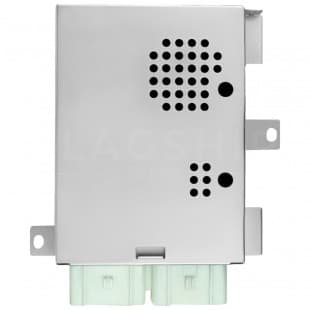


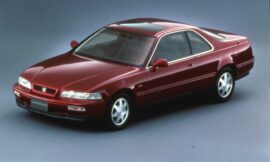
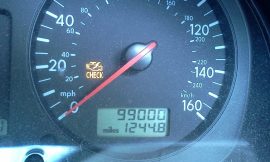
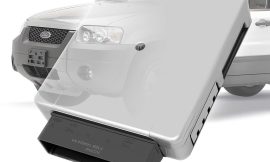


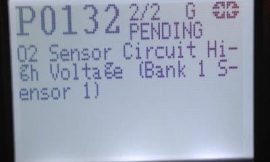

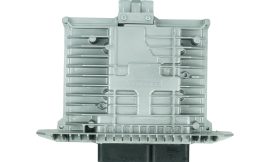
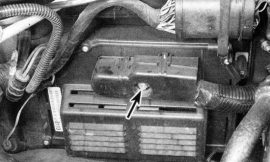
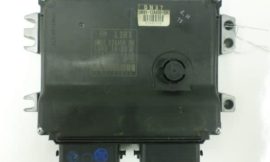

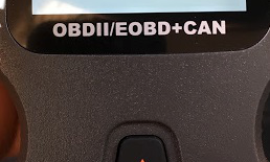
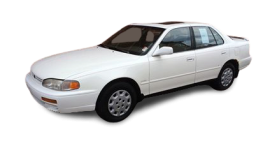
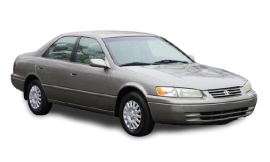
G’day Mate.
I have a 2009 3L LTR Colorado 4×4 an when I lock the car the blinkers wont flash an the hazards wont work when I push the hazard button on the dash, I’m told it is the body control module is that right.
The car runs an drives as it should the blinkers work as they should everything works as it should apart form blinkers when I lock car an hazards wont work. Any thoughts.
Thanks Rob.
02/08/2021.
F250 7.3 SUPER DUTY DEISEL TURBO STEP ON BRAKE TURN KEY STARTED RIGHT UP REMOVED MY FOOT FROM THE BRAKE PEDLE TRUCK SHUT OFF NO DASH NO CRANK NEW BATTERYS
Boss! I’m inquiring politely!
The BCM does not appear to be completely out of order, only the error code in the instrument cluster is lit! There is absolutely no problem with the operation of the vehicle! The error codes are U0485 and U0516. Can you tell me why?
Hi there, I’m curious if a bad BCM could affect the SYNC system in a 09 Ford Expedition?